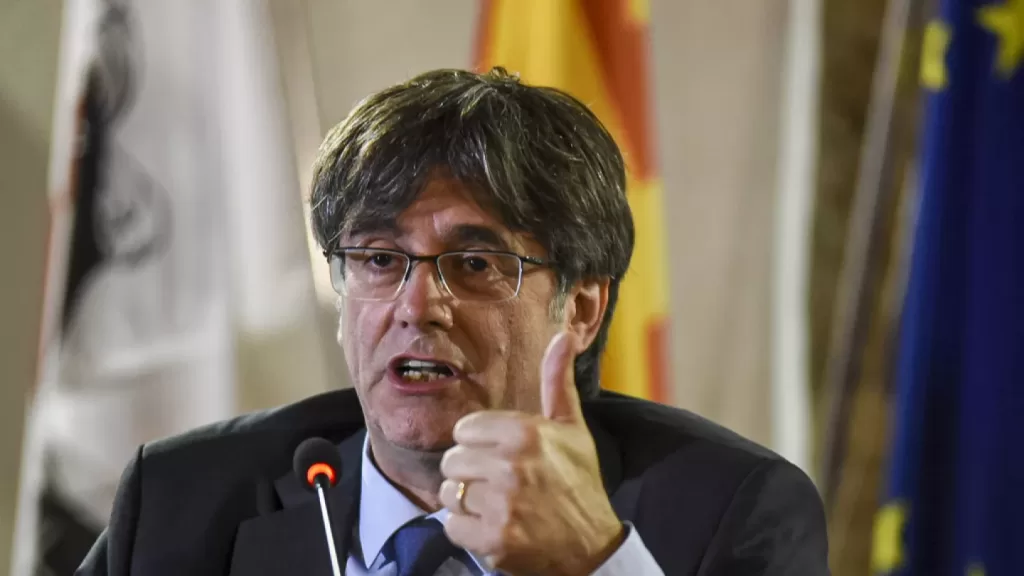Spain’s top court has opened a terrorism investigation into former Catalonia President and separatist chief Carles Puigdemont over protests linked to the region’s failed 2017 independence referendum, according to Politico.
The Supreme Court decided unanimously to investigate Puigdemont and MP Rubén Wagensberg “for crimes of terrorism in relation to the facts investigated in the ‘Democràtic Tsunami’ case,” the court said Thursday in a statement.
Democratic Tsunami is a secretive Catalan group that in 2019 organized a string of protests against the jailing of several separatist leaders involved in the 2017 referendum; in the unrest, thousands of protesters blocked access to Barcelona’s airport, clashing with police and causing the cancellation of over 100 flights.
The court said it had decided to launch the probe after examining a statement by judge Manuel García-Castellón, which includes “evidence that, in his opinion, proves the participation of the two defendants in the events under investigation.”
“All I’m missing now is to be accused of having a secret account in Panama,” joked Puigdemont, who lives in self-imposed exile in Belgium, in reaction to the news. “The Spanish Judicial Matrix has adapted the maxim of bad journalism: Don’t let reality stand in the way of a good indictment.”
By opening the probe the Supreme Court justices chose to override their own prosecutors, who earlier this month rejected requests to indict Puigdemont on terrorism charges in relation to Democratic Tsunami, arguing there was “no factual basis” to the case linking the politician and the group.
The investigation also pits the court against Spain’s national government and its European partners.
At this month’s extraordinary European Council summit in Brussels, Spanish Prime Minister Pedro Sánchez rejected the premise of the case and declared that “the Catalan independence movement is not terrorism.”
Last week the Swiss judiciary also took the unusual step of halting its collaboration with its Spanish counterparts, expressing doubts over the legitimacy of the probe and raising concerns it could be a “political case.”
The Supreme Court said on Thursday it “has no doubt” that what is alleged to have occurred in the Democratic Tsunami case corresponds with the judicial definition of terrorism.
The court cited “street terrorism” in the statement, a crime whose intent is to “subvert the constitutional order, seriously disturb the public peace, seriously destabilize the functioning of an international organization or to provoke a state of terror in the population or in a part of it.”
It added there are “several indications that would prove the participation of Carles Puigdemont in the events under investigation.”
The investigation comes as Spanish lawmakers struggle to find common ground on an amnesty bill that would guarantee immunity to all who have been prosecuted for their involvement with the pro-Catalan independence movement since 2012.
Last November, Sánchez was able to form a government thanks to the support of Puigdemont’s Junts party, which agreed to back the socialist leader in exchange for the amnesty legislation.
But at a crucial vote last month members of Puigdemont’s party blocked the bill, arguing the legislation didn’t fully protect separatists from prosecution for alleged terrorism-related crimes.
The launch of the Supreme Court’s terrorism investigation into Puigdemont is likely to make negotiations over the draft legislation all the more tense and jeopardize its swift approval.
Source link
